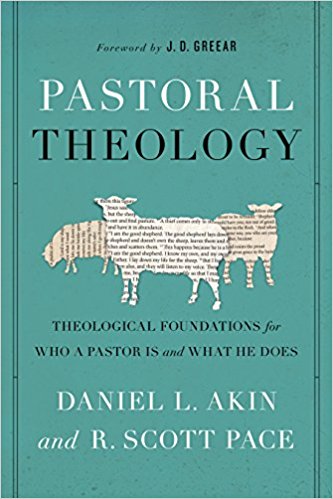
Pastoral Theology by Daniel Akin and R. Scott Pace is a book that stands apart from other books on the issue of pastoral ministry. Whereas many books on ministry focus more on the how-to of ministry the authors of this book provide a biblical theology of pastoral ministry.
This book is divided into three main sections. In the first section the authors provide a look at the trinitarian foundation of pastoral ministry. In a day where pragmatism is so emphasized it is refreshing to read a book that emphasizes the character of God and the importance of having one’s identity centered in Christ. The second section provides a look at the issues of anthropology, ecclesiology, and missiology. The authors rightly point the leaders to the relationship of God’s grace and compassion in the ministry. The last section addresses the practical God commanded tasks that underscore the work of pastoral ministry. The authors address the pastor’s role as under-shepherd of God’s flock, the role of preaching, and the priority of family in pastoral ministry.
I believe that this is one of the most important books on pastoral ministry that has been written in recent years. I would commend every pastor to buy this book and read it as what is lacking in much of evangelicalism today is a biblical understanding of pastoral ministry and this book is a helpful corrective to that.
Disclosure: I received a review copy of the book from the publisher for the purpose of reviewing it. The opinions I have expressed are my own, and I was not required to write a positive review.



